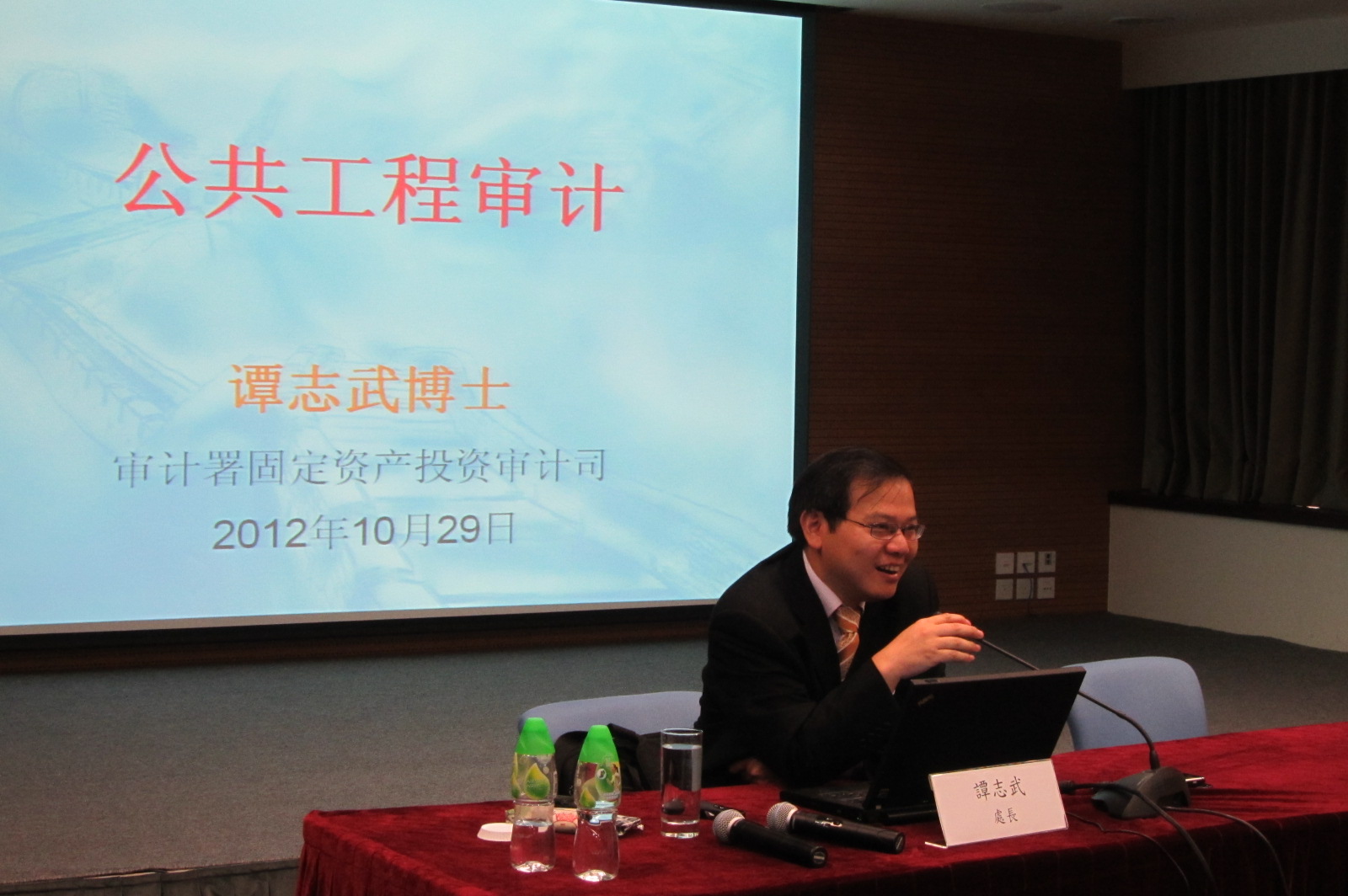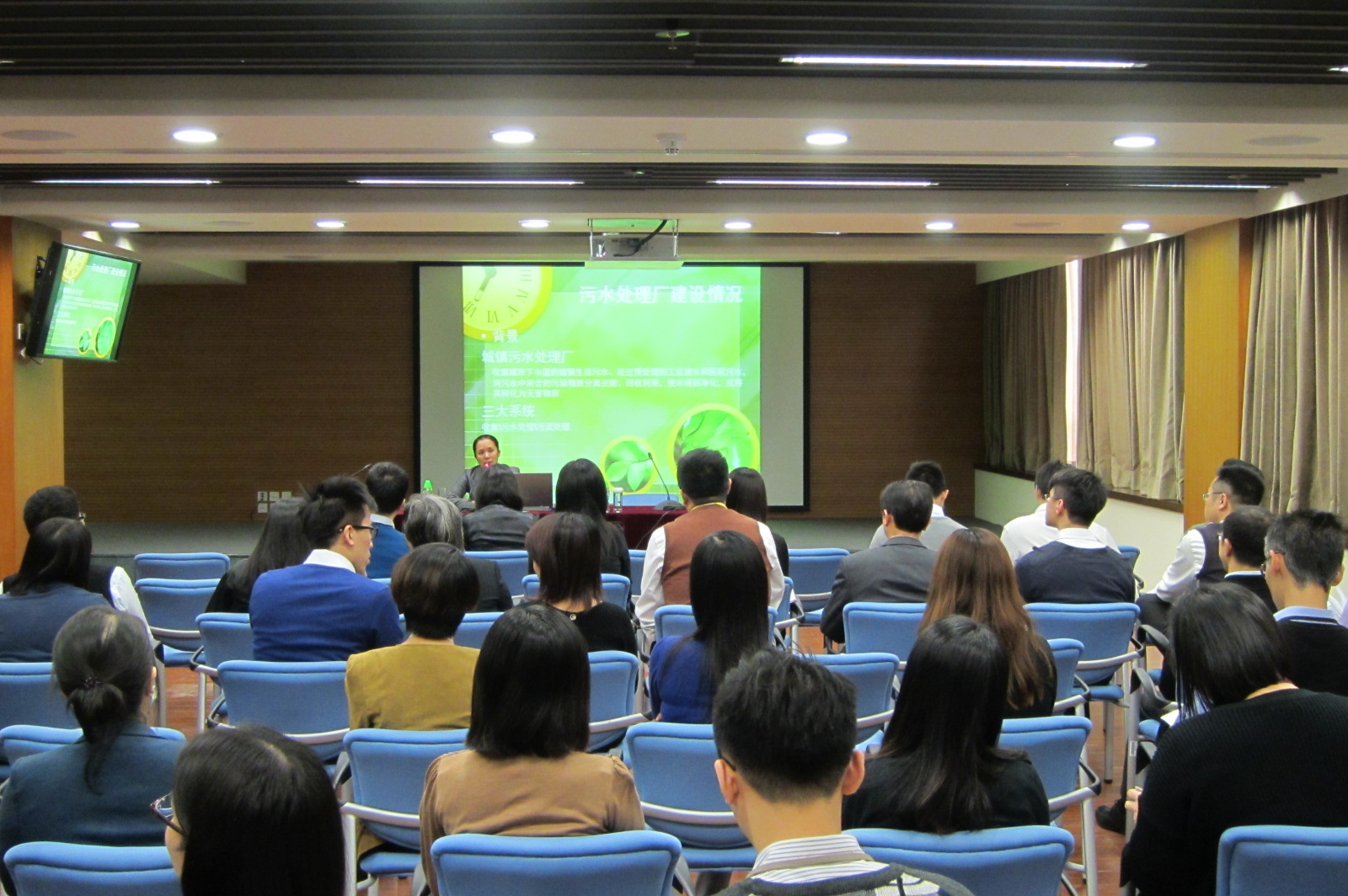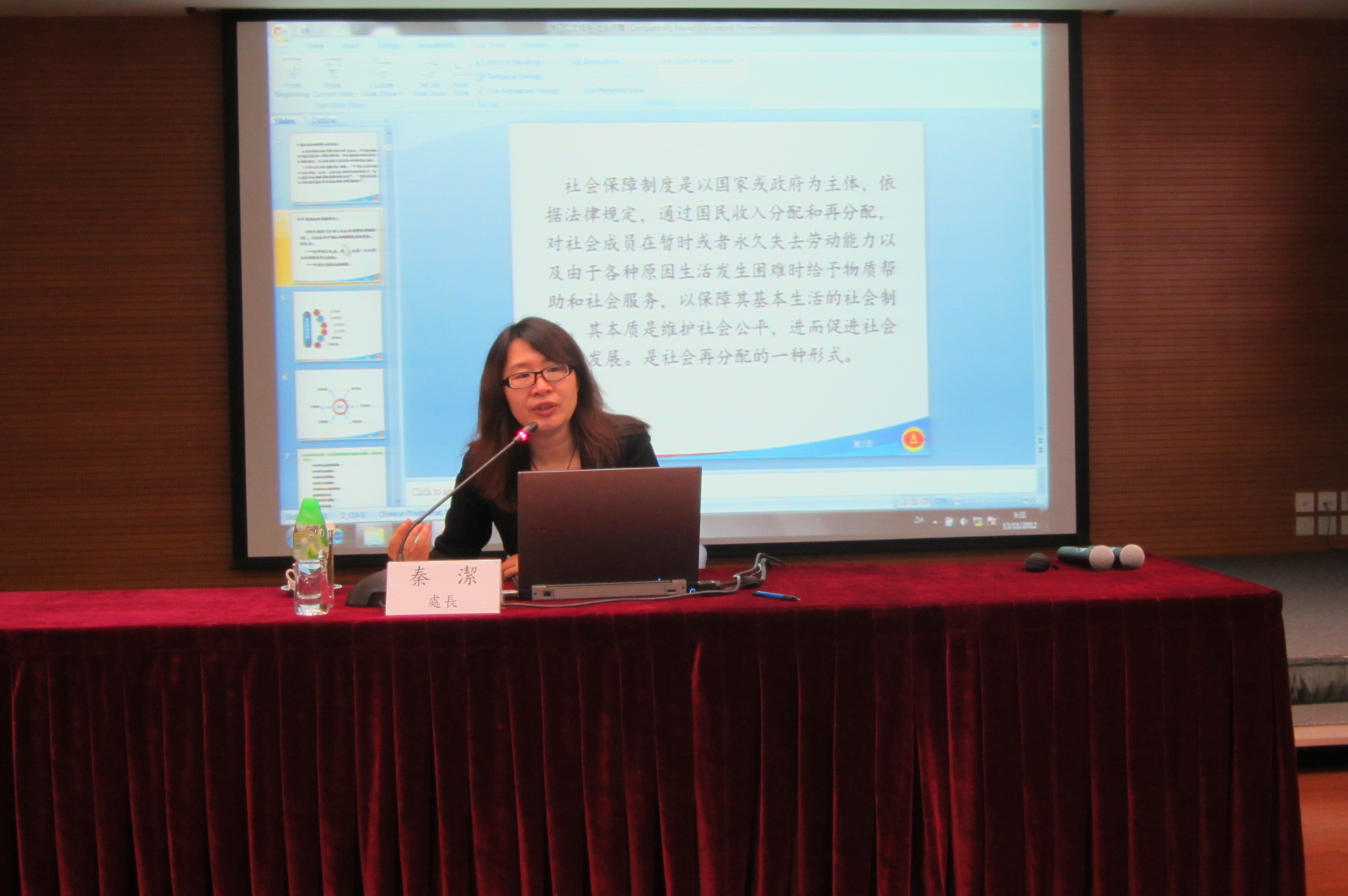In order to enhance the competencies and to widen the knowledge of its auditors, the Commission of Audit of Macau (CA), according to its staff training programme, invited experts from China National Audit Office (CNAO) to conduct a series of short courses — “Public Works Audit”, “Environmental Audit” and “Social Security Audit”.
The course on “Public Works Audit” was held last month and lectured by Tan Zhiwu, director of Department of Fixed Assets Audit, 3rd Division. The course programme encompassed the content, the features and the management procedures in public works audit. The trainer also talked on the current situation and future developments of audit in the public investment sector. Using real cases, Tan Zhiwu underlined the main points and methods of quality management and control audit in public works.
On 12 and 13 of this month, the division director Chen Jixiang, from the Department of Agriculture, Natural Resources and Environment Audit, and the division director Qin Jie, from the Department of Social Security Audit, delivered the courses of “Environmental Audit” and “Social Security Audit”. The lecturers presented the characteristics of implementation of these two types of audits, their basic theories and technical skills and gave an overview on how audits in these two areas are carried out.
All the training courses referred above have been organized with the support of the Department of International Cooperation of CNAO. The same department assisted CA in enrolling its staff in courses organized this year by CNAO and held on mainland China namely: “Audit on Building Projects”, “IT Audit - intermediate”, “IT Audit - intermediate (complementary)” and “Training of Young Auditors”. All participants from CA achieved the set requirements for certificate award. Furthering the participation in audit projects under CNAO (last year four CA’s auditors took part in an audit on reconstruction projects in areas affected by Wenchuan earthquake), the above referred department again helped CA to have two of its auditors taking part in an environmental audit project conducted in Nanjing this year, with the duration of three weeks and focused on proofs collecting skills. With this internship, the auditors widened their pool of skills and knowledge.
CNAO is fully devoted to the role of supervision through auditing. The number of the entities it audited has been increasing from year to year, totaling more than 130,000 in 2011. Various audit tasks have been executed through these years, like public finance audit, monetary audit, enterprise audit, accountability audit, resources and environmental audit and foreign-related audit. Pilot engagements in the forms of real time audit have also been undertaken.
CNAO is Vice-Chairman of the International Organization of Supreme Audit Institutions (INTOSAI) Governing Board since 2010. In 2013, CNAO will host the XXI INCOSAI (International Conference of Supreme Audit Institutions) and during which will take the Chair of the Governing Board. At present, CNAO is also member of various committees, working groups and task forces under INTOSAI framework, such as: Finance and Administration Committee, Professional Standards Committee and its Steering Committee, Working Group on Environmental Auditing and its Steering Committee, Working Group on Key National Indicators, Working Group on IT Audit, Working Group on Value and Benefits of SAI, Working Group on Accountability for and Audit of Disaster-related Aid, Working Group on Public Debt, Task Force Global Financial Crisis - Challenges to SAI and Task Force on Financial Foresight. In terms of skills and techniques, CNAO is among the most advanced supreme audit institutions of the world.
CA will continue intensifying the cooperation with CNAO, Nanjing Audit University, Audit Department of Guangdong, Audit Commission of Hong Kong and with Asian Organization of Supreme Audit Institutions in order that its staff could continually deepen and widen their professional knowledge and gain new audit skills, with the ultimate objective of being able to fully discharge its supervisory role.




